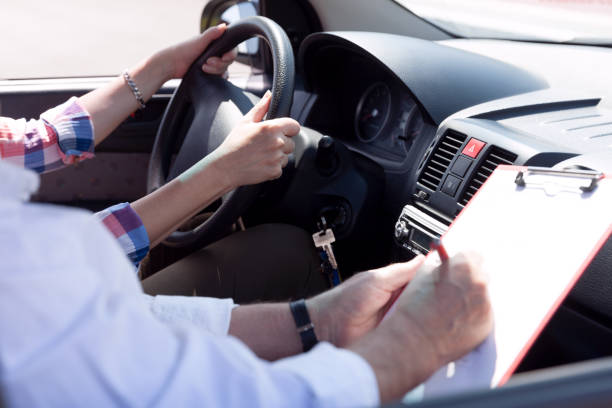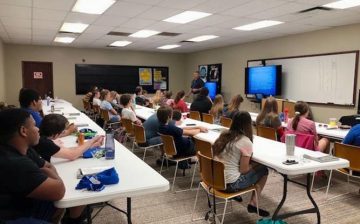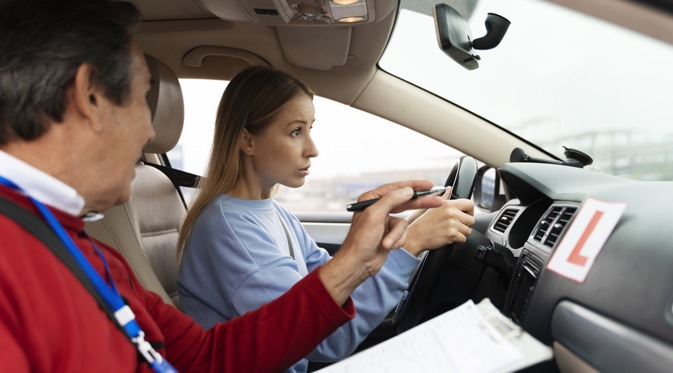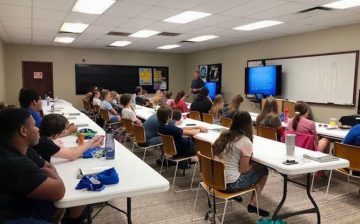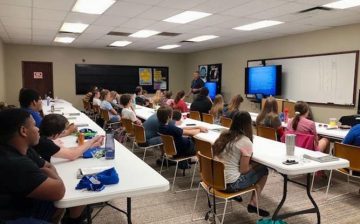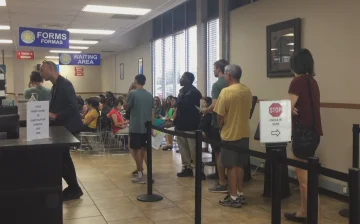In a world where milestones often dictate societal expectations, obtaining a driver’s license is a rite of passage for many. However, the journey to securing this small plastic card is as varied as the individuals pursuing it. Let’s delve into the complex question: “When did you get your license? Is it bad to be over 18 and not have your license yet?”
- Introduction
- Brief Overview of the Significance of Getting a Driver’s License
The allure of a driver’s license extends beyond mere legal documentation. It symbolizes freedom, independence, and a newfound level of adulthood. As teenagers anxiously count down the days until they turn 16, the age at which many can apply for their learner’s permit, societal expectations around licensing begin to take shape.
- Common Societal Expectations Regarding Obtaining a License
There’s a prevailing assumption that by the time one reaches the age of 18, they should have already acquired their Driver’s License. This expectation is deeply ingrained in the culture, often leading to a sense of urgency among young adults to join the ranks of licensed drivers.
- Factors Influencing License Acquisition
- Age-Related Considerations
The correlation between age and the pursuit of a driver’s license is a significant factor. While some eagerly embrace the opportunity at the legal age, others may feel unprepared or disinterested.
- Personal Circumstances Affecting the Decision
Individual circumstances, such as living in urban areas with robust public transportation, may influence the urgency to obtain a license. Economic factors and family dynamics also play a pivotal role in this decision-making process.
- Cultural and Regional Influences
Cultural norms and regional disparities contribute to the diversity of perspectives on licensing. In some communities, the need for a license may be emphasized, while in others, alternative modes of transportation are more accepted.
III. The Impact of Not Having a License After 18
- Societal Perceptions and Stereotypes
Being over 18 and without a driver’s license can subject individuals to societal perceptions and stereotypes. The assumption that everyone should drive by a certain age can lead to unwarranted judgment and scrutiny.
- Practical Challenges in Daily Life
Beyond societal judgments, there are practical challenges associated with not having a license. Daily commuting, running errands, and accessing opportunities become more complex without the convenience of personal transportation.
- Emotional and Psychological Aspects
The emotional toll of not conforming to societal norms can affect one’s self-esteem and confidence. Exploring the emotional and psychological impact of this societal expectation is crucial for understanding the holistic impact on individuals.
- Reasons for Delayed License Acquisition
- Changing Perspectives on Transportation
In recent years, there has been a shift in perspectives regarding transportation. Environmental consciousness, the rise of ride-sharing services, and the increasing focus on urban living contribute to a reevaluation of the necessity of personal vehicle ownership.
- Economic Factors and Financial Constraints
The financial burden associated with car ownership, including insurance, fuel, and maintenance costs, may deter individuals from pursuing a license immediately upon turning 18.
- Educational and Career Priorities
For some, the pursuit of adult driver education course or career goals takes precedence over obtaining a driver’s license. In a world that is increasingly interconnected digitally, the need for physical mobility may be less urgent for certain individuals.
- Overcoming the Stigma
- Personal Growth and Self-Acceptance
Individuals who choose to delay or forego obtaining a license often embark on a journey of self-discovery and personal growth. Overcoming societal expectations requires a strong sense of self and a commitment to one’s individual path.
- Alternative Modes of Transportation
In a world filled with transportation options, embracing alternatives such as public transit, biking, or walking showcases a commitment to environmental sustainability and personal choice.
- Success Stories of Individuals without a License
Highlighting success stories of individuals who thrive without a driver’s license challenges the conventional narrative and provides inspiration for those questioning societal expectations.
- The Licensing Process
- Overview of Obtaining a Driver’s License
Understanding the step-by-step process of obtaining a driver’s license is essential for those considering the journey. From learner’s permits to passing the driving test, each stage comes with its own set of challenges and triumphs.
- Tips for Preparing and Passing the Driving Test
For those ready to take the plunge into the world of driving, practical tips and advice on preparing for and passing the driving test can alleviate anxiety and ensure a smoother transition to licensed driving.
- Addressing Common Fears and Anxieties
Fear of failure, anxiety about navigating traffic, and concerns about safety are common barriers to obtaining a license. Addressing these fears head-on and providing practical solutions can empower individuals to overcome these challenges.
VII. Benefits of Having a License
- Increased Mobility and Independence
The primary benefit of having a driver’s license is the freedom of mobility and independence it provides. Exploring the world beyond the confines of public transportation opens up new opportunities for personal and professional growth.
- Career Opportunities and Professional Growth
In many industries, a driver’s license is not only a convenience but a requirement. Exploring the career opportunities and professional advantages that come with a license can motivate individuals to pursue this milestone. So how much does drivers ed cost for your best career opportunities and Professional growth.
- Social and Recreational Advantages
Socializing, attending events, and exploring recreational activities become more accessible with a driver’s license. The social advantages of having personal transportation contribute to a well-rounded and fulfilling lifestyle.
VIII. Community Perspectives
- Interviews with Individuals Who Obtained Their Licenses Later in Life
Real-life narratives from individuals who obtained their licenses later in life provide valuable insights into the diverse paths people take. These interviews offer a glimpse into the motivations, challenges, and triumphs of those who delayed their licensing journey.
- Exploring Diverse Opinions on the Matter
Engaging with diverse opinions within the community fosters understanding and empathy. Perspectives from different age groups, backgrounds, and cultural contexts contribute to a more nuanced understanding of the topic.
- Understanding Generational Differences
Generational differences in attitudes toward licensing reveal evolving societal norms and changing priorities. Bridging the gap between generations requires open dialogue and a willingness to embrace differing perspectives.
- Changing Trends in Licensing
- Shifting Attitudes Towards Car Ownership
As urbanization and environmental concerns influence lifestyle choices, there’s a notable shift in attitudes toward personal vehicle ownership. Exploring these changing trends provides context for individuals reevaluating the necessity of obtaining a license.
- Rise of Alternative Transportation Options
The emergence of ride-sharing services, electric scooters, and other alternative transportation options presents viable alternatives to traditional driving. Understanding and embracing these alternatives contribute to a more sustainable and flexible transportation landscape.
- Impact of Technology on Commuting Habits
Technological advancements, including autonomous vehicles and smart transportation systems, are shaping the future of commuting. Exploring the impact of technology on commuting habits provides a forward-looking perspective on the evolving landscape of transportation.
- The Importance of Making Informed Choices
- Weighing the Pros and Cons of Obtaining a License
Making an informed decision about obtaining a license involves weighing the pros and cons. Considering individual goals, lifestyle preferences, and future aspirations ensures that the decision aligns with one’s broader life plan.
- Considering Individual Goals and Aspirations
Every individual’s journey is unique, and aligning the decision to obtain a license with personal goals and aspirations is crucial. Reflecting on one’s priorities ensures a decision that resonates with individual values.
- Encouraging Responsible Decision-Making
Emphasizing the importance of responsible decision-making regarding licensing encourages individuals to approach the process with a sense of responsibility and mindfulness.
- Addressing Concerns About Safety
- Evaluating the Correlation Between Age and Driving Abilities
Debunking myths about age and driving proficiency is essential for fostering a more inclusive perspective. Safety concerns often arise when individuals delay obtaining a license, and addressing these concerns requires an objective evaluation of driving abilities.
- Exploring Initiatives Promoting Safe Driving Practices
Promoting safe driving practices is paramount, regardless of age or experience level. Highlighting initiatives and programs that focus on educating drivers and fostering responsible behavior contributes to a safer road environment.
- Debunking Myths About Age and Driving Proficiency
Dispelling myths surrounding age and driving proficiency challenges stereotypes and promotes a more inclusive view of road safety. Acknowledging the diversity of skills among drivers encourages a more respectful and understanding community.
XII. Personal Stories and Experiences
- Narratives from Individuals Who Chose Not to Obtain a License
Sharing personal stories from individuals who made a conscious choice not to obtain a license provides valuable insights into alternative lifestyles and choices. These narratives offer a counter-narrative to the conventional expectations surrounding licensing.
- Insights Into Their Lifestyles and Choices
Understanding the lifestyles and choices of individuals without a license sheds light on the variety of ways people navigate the world. From embracing sustainable transportation to prioritizing community connections, these insights challenge preconceived notions.
- Lessons Learned from Unique Perspectives
Reflecting on the lessons learned from unique perspectives enriches the narrative surrounding licensing. Each individual’s journey contributes to a broader understanding of the diverse paths people take in life.
XIII. Community Support and Resources
- Organizations Providing Assistance to Non-Drivers
Highlighting organizations and resources that support non-drivers fosters a sense of community and inclusivity. These initiatives provide practical assistance and create networks for individuals who choose alternative modes of transportation.
- Establishing Networks for Shared Transportation
Building networks for shared transportation promotes a sense of community and shared responsibility. Collaborative efforts in transportation contribute to sustainable practices and a more connected community.
- Promoting Inclusivity and Understanding
Promoting inclusivity involves understanding and respecting diverse choices regarding licensing. Creating a culture that embraces various transportation options and lifestyle choices contributes to a more inclusive and supportive society.
XIV. Overcoming Societal Pressure
- Strategies for Handling Judgment and Criticism
Navigating societal pressure requires strategies for handling judgment and criticism. Empowering individuals to stay true to their choices and respond confidently to societal expectations is essential for mental well-being.
- Encouraging a More Inclusive and Understanding Society
Encouraging a more inclusive society involves challenging norms and fostering empathy. Recognizing and appreciating the diversity of choices in transportation and lifestyle contributes to a culture of understanding.
- Fostering a Sense of Community Among Non-Drivers
Building a sense of community among non-drivers creates a support system for those who choose alternative transportation methods. Shared experiences and mutual understanding strengthen bonds within this community.
- Conclusion
- Recap of Key Points
The journey to obtaining a driver’s license is diverse and influenced by various factors. From societal expectations and personal circumstances to changing trends in transportation, the decision to drive is a nuanced one.
- Encouragement for Readers to Make Choices Aligned with Their Goals
Ultimately, the timing of obtaining a driver’s license should align with individual goals and aspirations. Readers are encouraged to make choices that resonate with their values, considering the broader context of their lives.

